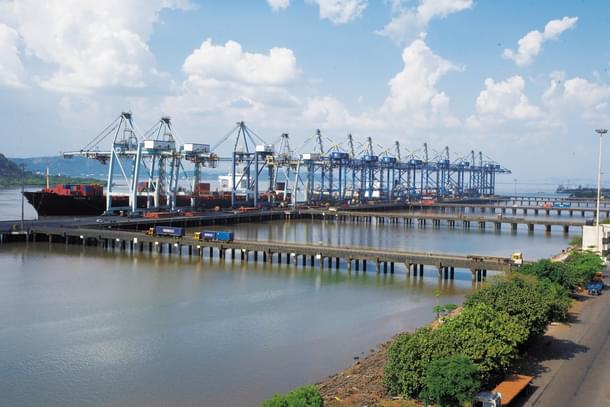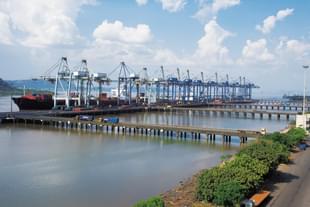Infrastructure
JNPA Plans Major Expansion: India’s Top Container Port To Scale Capacity To 10 Million TEU Amid Global Trade Surge
Swarajya Staff
Aug 23, 2024, 01:41 PM | Updated 01:43 PM IST
Save & read from anywhere!
Bookmark stories for easy access on any device or the Swarajya app.


Jawaharlal Nehru Port in Navi Mumbai is set to increase its container handling capacity to 10 million TEUs (Twenty-foot Equivalent Units), as announced by Union Minister for Ports, Shipping, and Waterways, Sarbananda Sonowal.
The port's expansion is scheduled to begin in April 2025, positioning it to meet the growing demands of both domestic and international trade.
In the first half of fiscal year 2025, Jawaharlal Nehru Port Authority (JNPA) handled 7.4 million TEUs, with the capacity expected to reach 10.4 million TEUs by the following April.
During the fiscal year 2023-2024, the port managed 6.4 million TEUs, as per an Economic Times report.
"Jawaharlal Nehru Port has become the first 100 per cent landlord port in the country, and accordingly we are aiming for bigger and bigger ships at this facility " Sonowal added, at an event on 22 August.
The expansion stands crucial for India's maritime trade, as JNPA currently handles over half of the country's containerised cargo.
The full expansion, projected to be completed by 2029, will boost capacity from the current 6.5 million containers.
The minister also emphasised plans to make the port eco-friendly as part of its future direction and inaugurated several sustainability projects within the JN Port complex.
Additionally, the port authority announced the signing of two memorandums of understanding (MoUs) — including one between JNPA, Vadhvan Port, and REC to facilitate loans for various infrastructure projects.
The port also awarded concessions for Liquid Berths 3 and 4 (LB3/LB4), which will be developed and operated under a Public-Private Partnership (PPP) model to accommodate additional liquid cargo.





